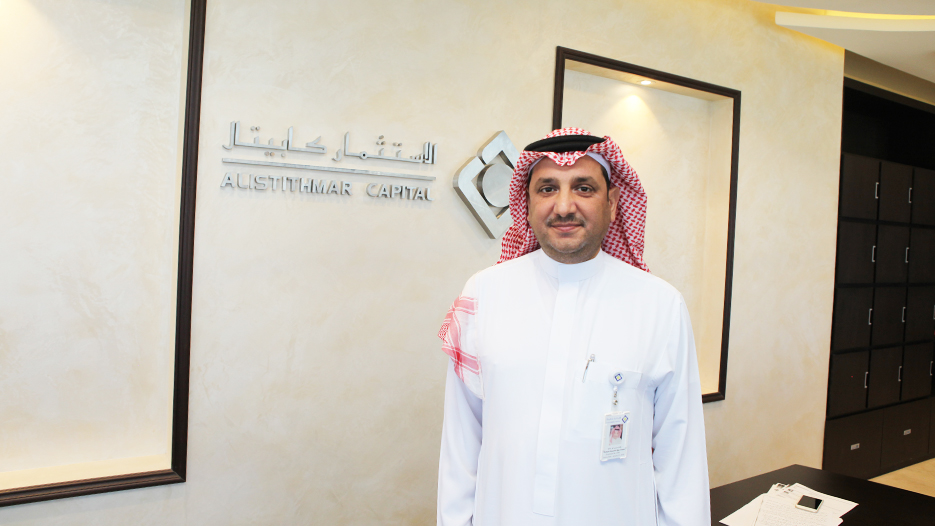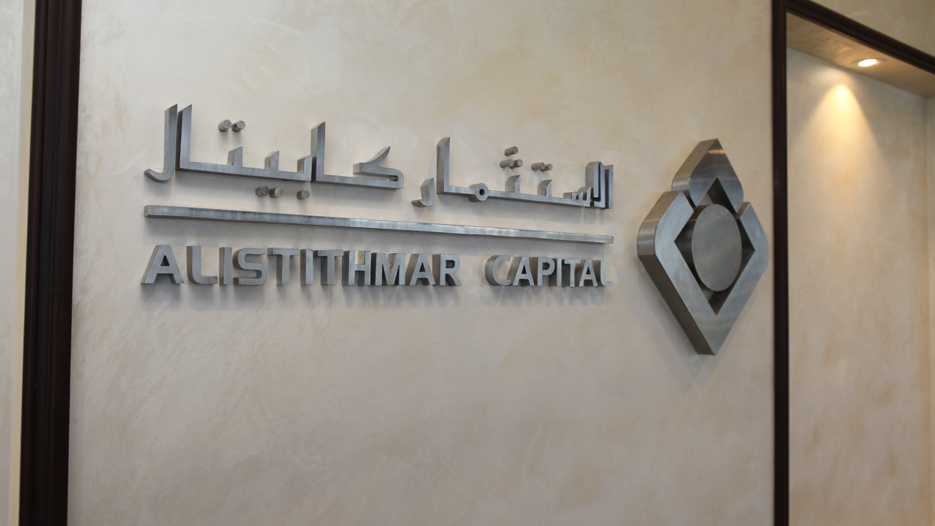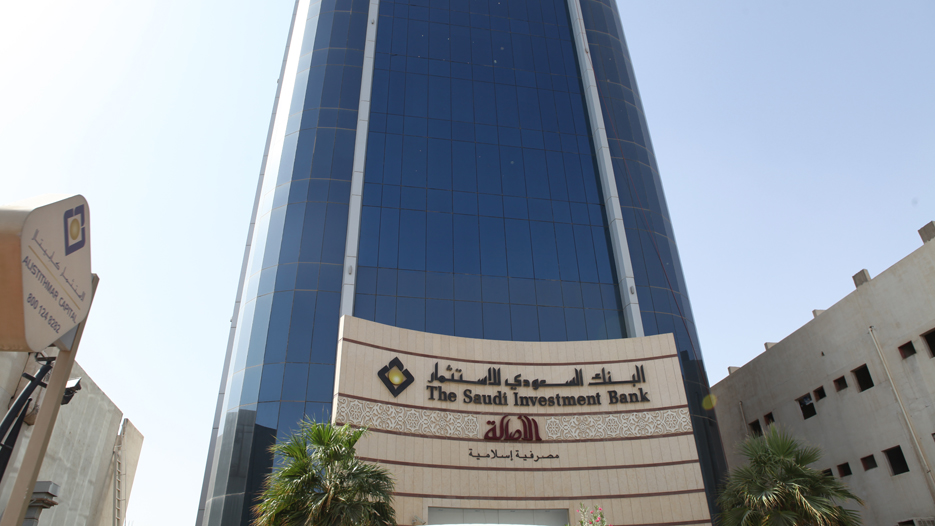Saudi stock market will experience challenges in 2016
The Saudi stock market today has been negatively affected by many factors particularly the geopolitical issues especially in Yemen and Syria and the sharp decline of the oil price from $120 to $40, which is a decline of some 60 or 70%.
Interview with Hesham Abo Jamee, CEO of Alistithmar Capital

Saudi Arabia has the largest stock market in the Middle East. And the value of all companies listed on the exchange — roughly $430 billion 12/9/2015 — makes it bigger than the main markets in Russia and Mexico, according to the latest data from the World Federation of Exchanges. Also, Saudi Arabia’s securities market regulator said that it would permit off-market trading of shares in companies which had been suspended or delisted from the stock exchange. What is the outlook for the capital markets?
The Saudi stock market today has been negatively affected by many factors particularly the geopolitical issues especially in Yemen and Syria and the sharp decline of the oil price from $120 to $40, which is a decline of some 60 or 70%.
These are the main challenges for the Saudi stock market and the Saudi economy. However we trust that the market will rebound. There are lot of positive developments in the economy and there is now the new generation government with King Salman, Prince Muhammed bin Nayef and Prince Muhammed bin Salman.
They have a lot to do for the Saudi economy and we shall see that next month with the new budget for 2016. The budget proposal will directly impact the Saudi stock market. 2016 will be a challenging year for the stock market. Most of the companies are now below their valuations.
The banks now trade at 8 or 9PE which is very low with high dividend deals in certain sectors such as cement and petrochemicals. There is a high probability of rebound in case there is positive news.
Companies listed on the Saudi stock market have relatively high dividend yields. The cement sector has a dividend of about 8%. STC has about 6% 12/9/2015 and most of the banks have about 4 or 5%. Petrochemicals have had the worst year but they have announced good dividends for 2015. I believe this will continue in the market. The average dividend yield in the market now is about 5% which is very high compared to the emerging and developed markets.
Regarding the challenges, what do you think are the major challenges and perhaps the major reforms that the authorities should consider? Do you see the stock market opening up for foreign retail investors?
The market is not ready to open up for foreign retail investors. Actually, they will not come without considering Saudi as part of the major index in the world. The timeline for opening is the first quarter of 2017 and not before.
Until then, the market is open for prequalified major institutional foreign investor with long term investment strategies. Hot money can do more damage to the capital markets. There is no shortage of liquidity. The market is liquid. The real benefit of the investors is to enhance the performance of the companies and businesses. When the qualified investors enter the companies to Saudi Arabia, they might become part of the board of directors.
That will enhance the performance of the management of the Saudi companies. Improved corporate governance is needed rather than liquidity. We need their experience regarding how to accelerate the positive growth in the companies in the Kingdom.
The recent report by IMF outlined possible bankruptcy of Saudi Arabia within 5 years. It is over exaggerated and people do not necessarily have the understanding of what is happening on the ground.
They only took the headlines from the newspapers without thinking deeply about what is happening in Saudi Arabia. Saudi Arabia is one of the largest exporters of oil in the world and proven oil reserves of 269.5bn barrels constituted 15.8% of the world’s total at the end of 2013, behind only Venezuela’s share of 17.7%.
Saudi Arabia will continue the current level of expenditure; however the spending will be more rational and controlled. The report by the IMF was aggressive against Saudi Arabia. From my point of view we are safe for at least ten years even with the current oil prices.

The stock market has seen some companies that have been through some turmoil, for example Mobily, do you think that more companies could revise their numbers in the future? Is the CMA a good regulator?
Actually what happened with Mobily surprised everybody in Saudi Arabia. Mobily was an ideal company in Saudi Arabia. The final results have not been issued yet, in a matter of fact, this happens in the largest markets and companies, such as Enron in the US, Tesco in the UK and Toshiba in Japan. We will not see more companies like this.
The corporate governance in Saudi Arabia is of a very high standard. The CMA tries to control all companies and all authorised persons. From our experience, the regulations in Saudi Arabia are one of the best in the MENA region or even in the Middle East region and Asia. We have very high standard regulations that are controlled by the CMA.
Can you talk about your strategy for the company?
Alistithmar Capital is owned 100% by the Saudi Investment Bank. Alistithmar in Arabic means investment. We are a fully-fledged company. Three years ago, when I joined the company, we rebuilt it with the team.
Three years ago we were number ten in terms of total traded value and today we are number five or six, with about 8% of market, in addition to the global brokerage which reached 11%. In terms of asset management this year we were number one or two for our performance in the local equity fund management. We launched two real estate funds in early 2015.
Also two years ago we launched a new department for corporate finance. It is a young company. We are the fastest growing company in the Kingdom now as a bank affiliate company. We have a five year strategy up until 2019. Our aim is to be one of the best companies in the Kingdom based on market share, performance, creativity, funds and corporate finance.
Regarding the performance of your funds…
We are number one or number two for most of our funds. It is based on the alpha. The market has decreased by 10% now while we have a 1% increase. The alpha is your performance against the benchmark. The benchmark declines by 10% while we are up 1%.

In terms of your overall investment strategy, where would you like to focus in the coming years?
The strategy is to focus on asset management and real estate funds. It is a more stable income for the company. The brokerage is susceptible to the sentiment in the market. Even if your market share is high, if the value goes down, your income will be low. But with good asset management and with good funds, your income will be continuous for the company. We will focus more in asset management and real estate and also try to do a bit more business in corporate finance.
You would like to remain in real estate but which are the promising sectors within that?
In real estate we are focusing on creative structured income generating funds which everybody looks at as well as great opportunities in development funds. We are evaluating local and international opportunities and working with experienced developers to make sure that we present the best opportunities to our customers.
The company has prepared couple of funds, which will target to generate about 6 to 8% yield for our clients. We will start launching these funds next year.
Regarding your competition, how do you differentiate yourselves from anybody else in the market?
Alistithmar Capital’s main asset is the Saudi staff. There is a shortage of such staff in the Kingdom. Most of our heads and VPs are very qualified Saudis. The company employed one of the best market analysts, best team in the asset management with CFA certification.
In brokerage, key to success is understating the client. The company has been able to double the market share by focusing and understanding the clients’ needs. The best real estate fund manager in Saudi Arabia works for the company. This is our future, building up the people and building new products that help the customers.
Will your focus be on Saudi Arabia?
Alistithmar’s activities are focused on Saudi Arabia. Saudi Arabia offers unprecedented opportunities. However, it is a very challenging market. 90% of our strategy is for business in Saudi Arabia.
Is this the same for the geolocation of your assets?
To invest outside Saudi Arabia you need a lot of experience and you have to take a lot of risk. At this stage, the company is not prepared to invest abroad. At the same time, Saudi Arabia offers great investment opportunities. When these opportunities end, we shall look outside.
Many other investment companies are now investing a lot in education and in health which are growing areas. The budget allocation for education is about a quarter of the whole budget.
Education and health are areas of growth. The corporate finance department is closely evaluating and studying these two sectors. Our goal is to launch what they call PE, private equity funds to invest in healthcare and education. The timeline is two years to study the sector and by 2018 two fund will be launched.
What is the number of funds you currently have?
We have about 9.
Can you tell us about your vision for the company and about your past experience?
I have about twenty years experience in the local market. I joined the previous company Bakheet Investment Group in 1993 and I spent about twenty years there. We were the leader at that time in the advisory services for the stock market. When I started working for Alistithmar, I tried to repair the company and I feel I have done well.
We increased our asset management and the strongest point here is attracting more qualified people to the company. Assets here are the people, not the money or the building. We have the best team in the Kingdom.